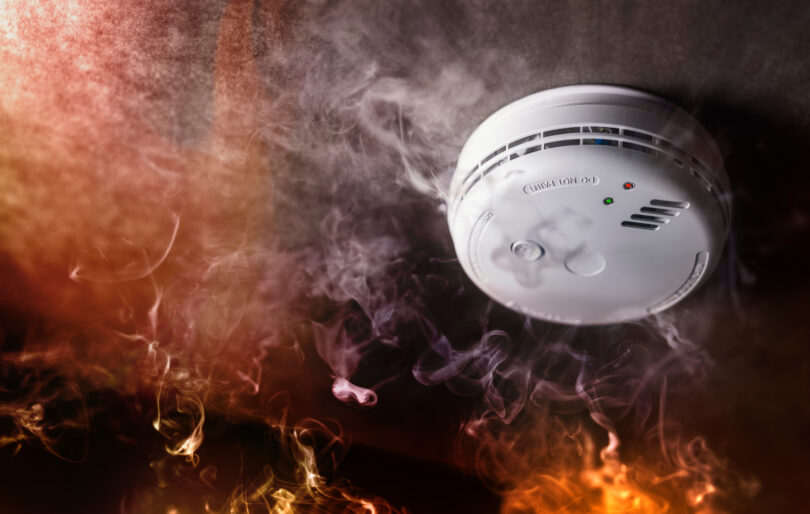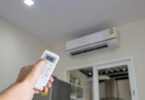When it comes to home safety, few devices are as quietly effective as the smoke detector. These unassuming devices are a cornerstone of modern fire safety, offering round-the-clock protection against one of the most devastating and unpredictable threats a homeowner can face: a house fire.
While we often take them for granted, smoke detectors are silent saviors standing guard over our homes and loved ones. In this comprehensive guide, we will explore the importance of smoke detectors installed by domestic electricians, how they work, the different types available, maintenance tips, and their role in keeping you and your family safe.
The unseen guardian: Understanding the importance of smoke detectors
Before we delve into the details of smoke detectors, it’s essential to understand why they are so crucial in safeguarding your home. House fires can start and spread with alarming speed.
In fact, it takes just a few minutes for a small fire to turn into a full-blown inferno, engulfing your entire home. These precious minutes are often the difference between life and death, and the silent savior in this scenario is the humble smoke detector.
Smoke detectors are designed to detect smoke and alert you to a potential fire before it spirals out of control. The shrill alarm they emit serves as an early warning system, giving you and your family valuable time to escape to safety.
Whether you are asleep, at work, or simply going about your daily routine, smoke detectors remain vigilant, ready to save lives when danger strikes.
How smoke detectors work
Understanding how smoke detectors function can help users appreciate their effectiveness. There are primarily two types of smoke detectors commonly used in homes: ionization and photoelectric.
Ionization smoke detectors
These detectors work by using a small amount of radioactive material to ionize the air inside the chamber. Ionization detectors are highly sensitive to fast-burning, flaming fires, making them a valuable addition to your home’s fire safety.
Photoelectric smoke detectors
Photoelectric detectors source light and use a sensor. When smoke enters the chamber, it spreads the light, which spreads the light of the sensor and alerts for danger. These detectors are particularly effective in sensing slow, smoldering fires, such as those caused by a malfunctioning electrical appliance.
Most modern smoke detectors incorporate both ionization and photoelectric technology, offering comprehensive protection against various types of fires.
Different types of smoke detectors
While ionization and photoelectric detectors are the two main types of smoke detectors, there are a few variations and options available to cater to specific needs and preferences, as follows.
Hardwired smoke detectors
These detectors are connected to your home’s electrical system and may have a battery back-up. They are more reliable but may require professional installation.
Battery-operated smoke detectors
These are easy to install and work independently of your home’s electrical supply. They are a great option for areas with unreliable power sources or as an additional safety measure.
Interconnected smoke detectors
When one detector in the system detects smoke, it triggers all interconnected detectors in the house to sound the alarm. This feature ensures that everyone in the house is alerted, no matter where they are.
Smart smoke detectors
These detectors are part of the Internet of Things (IoT) revolution. They connect to your smartphone or other devices, allowing you to receive alerts remotely. Some can even integrate with home automation systems to enhance safety.
Maintenance tips for smoke detectors
Smoke detectors are reliable, but like any technology, they require regular maintenance to perform optimally. Here are some essential tips for keeping your silent saviors in top shape.
Test smoke detectors monthly
Most smoke detectors have a test button. Press it once a month to ensure the alarm is working correctly. Incase sound was weak or not exist so immediately change the battery.
Change batteries annually
Even if your smoke detector has long-life batteries, it’s a good practice to change them annually. A chirping sound from the detector is a sign that the battery is low.
Clean regularly
Even if your smoke detector has long-life batteries, it’s a good practice to change them annually. A chirping sound from the detector is a sign that the battery is low.
Replace every 10 years
Smoke detectors have a limited life. Check the manufacturer’s instructions, but a general rule of thumb is to replace them every ten years to ensure they remain reliable.
Install in strategic locations
Place smoke detectors in crucial areas like bedrooms, hallways, and near the kitchen. Avoid installing them near windows, doors, or vents, as drafts can interfere with their operation.
Teach your family
Make sure everyone in your household knows what the smoke alarm sounds like and what to do in case it goes off. Create and practice a fire escape plan with your family, including a designated meeting place outside the house.
The silent saviors in action: Real-life stories
Smoke detectors have countless tales of heroism to their name. Here are a few real-life stories that highlight their importance.
The lullaby that saved lives
In a small suburban home, a family of four was fast asleep one fateful night when a fire started in the garage. The home’s interconnected smoke detectors promptly sounded the alarm, waking the family just in time to escape. Their smoke detectors saved their lives, earning their gratitude forever.
A Christmas miracle
On Christmas Day, a home’s smoke detector detected a smoldering fire in the kitchen, most likely the result of a forgotten dish in the oven. The homeowners were out of earshot, but the interconnected detectors in the bedrooms alerted the sleeping children, who then alerted their parents. A potential disaster was averted, and the family enjoyed their Christmas dinner with an extra serving of gratitude.
The apartment fire escape
On Christmas Day, a home’s smoke detector detected a smoldering fire in the kitchen, most likely the result of a forgotten dish in the oven. The homeowners were out of earshot, but the interconnected detectors in the bedrooms alerted the sleeping children, who then alerted their parents. A potential disaster was averted, and the family enjoyed their Christmas dinner with an extra serving of gratitude.
The last word
Smoke detectors often play a quiet but crucial role. These unassuming devices are the silent saviors that stand guard, ready to protect you and your loved ones when disaster strikes. Understanding their importance, how they work, and how to maintain them is essential for a safe home.
Remember that smoke detectors are not just gadgets on your ceiling; they are your family’s first line of defence against a house fire. Regular maintenance and a fire escape plan can make all the difference. Embrace these silent saviours, for in their shrill alarms lies the promise of safety and survival.
“The opinions expressed by BizWitty Contributors are their own, not those of BizCover and should not be relied upon in place of appropriate professional advice. Please read our full disclaimer."







